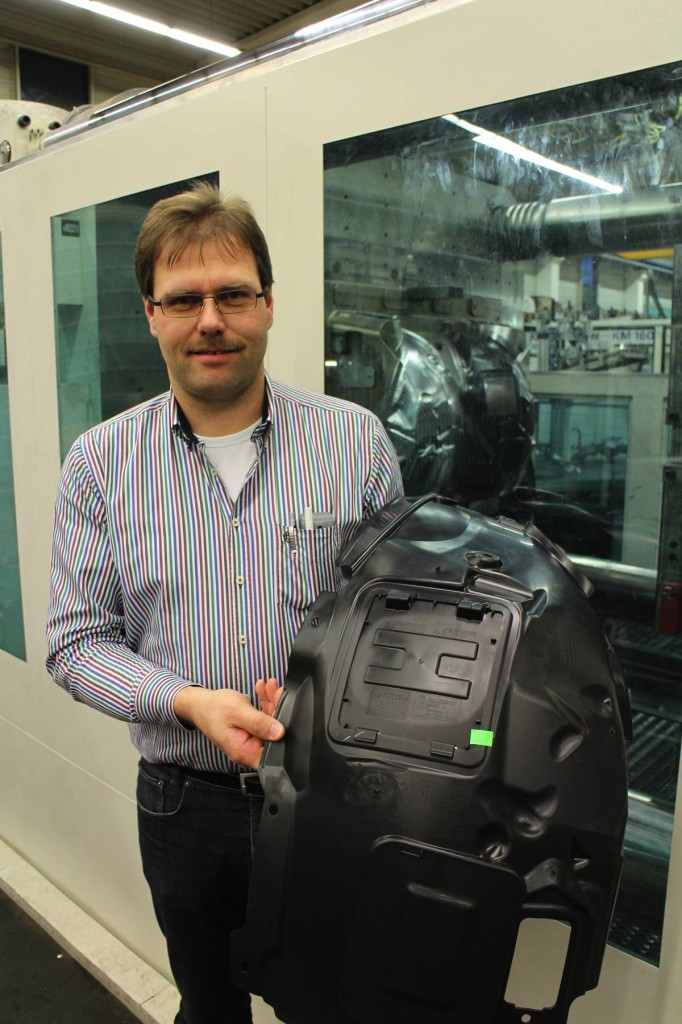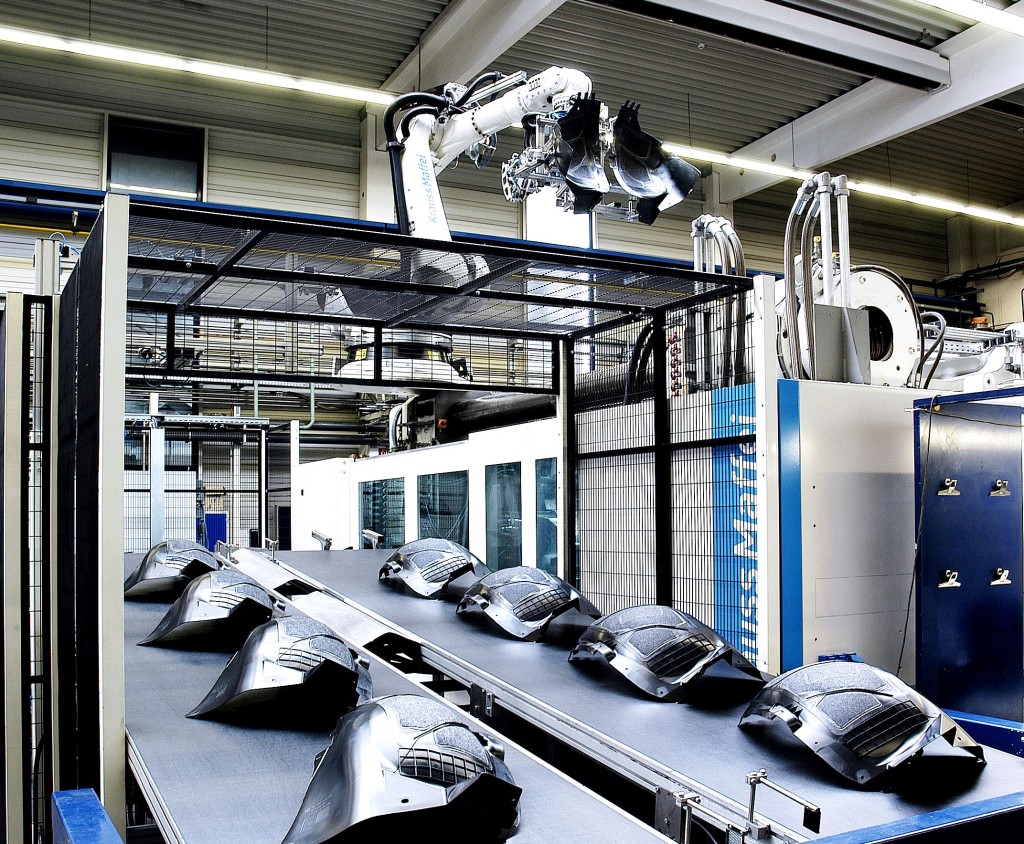- – Kunststofftechnik Weißenburg uses KraussMaffei technology for large automotive components made of recycled material
KTW is a highly successful, medium-sized automotive supplier with sales that have almost tripled in the last five years. The company specializes in high quality exterior and interior components, such as finishers, paneling, covers, air ducts and wheel house shells, which are manufactured using both the standard injection molding process and through special processes involving multicomponent technology, over-molding of film or fabric and variotherm technology. KTW processes approximately 5000 tons of thermoplastic per year on a total of 21 injection molding machines. Since 1998, the company has relied solely on KraussMaffei injection molding technology. Since then, 14 fully automated machines in the clamping force range of 80 to 2300 tons have been purchased in multiple installments. In 2011, as part of a larger package, KTW acquired the MX 2300, which produces wheel house shells from recycled materials for a large German automaker. In order to gain experience with the new features during day-to-day production and to apply these experiences to the development process, KraussMaffei equipped this large machine with the APC process control system. The polyolefin recycled material produced by KTW for wheel house shells is stored in 80-ton silos. Depending on their origin, the recycled materials vary in terms of grain size, consistency and bulk density, leading to substantial fluctuations in viscosity. KTW uses the Adaptive Process Control system to intervene in the production process automatically, within definable limits, so that a change in material viscosity does not lead to fluctuations in component weight.
Albert Burghart, Plant Manager of KTW in Weißenburg, explains this in more detail: “The use of the APC function enabled us to substantially improve continuous monitoring of melt quality, significantly reduce the subsequent rejection rate and guarantee precise traceability of the components down to the individual shot.”
Improving process stability and component quality with APC
In injection molding production, process stability plays a critical role with respect to the quality of the manufactured components. This is why injection molding machines must operate with a very high repeatability rate over a long production time period. In real-world applications, however, various external factors can, under certain circumstances, negatively influence a process that starts off with stable configurations. These factors range from viscosity fluctuations of the material and the influences of ambient conditions, all the way to effects caused by wear. The injection molding machine does continue to operate with typical precision, but is unable to compensate for the fluctuations from outside the process. This leads to quality defects and, ultimately, production waste. “We can eliminate these problems to a large extent with our Adaptive Process Control system. The new machine function is integrated into the MC6 machine control system and analyzes the current process state in each injection process. As a result, the injection molding machine alone is capable of keeping the configured process and the end product quality stable, even if the viscosity of the material or the flow resistance in the mold change due to external factors,” explains Dr. Reinhard Schiffers, Head of Machine Technology at KraussMaffei. These changes are registered by recording specific key parameters of the machine. Through clever evaluation of this process data, the machine can respond to the current process state within the specified limits. To do so, the Adaptive Process Control system adjusts the changeover point and the holding pressure profile to the current melt viscosity and current flow resistance in the mold. This makes it possible to compensate for deviations in the same shot.
Spatial proximity for close collaboration and efficient processes
“We are very satisfied with the work we accomplished with KraussMaffei. This project involved close collaboration between our two companies that proved to be fruitful for both parties,” adds Burghart. “Our insights and wishes were successively applied to the development of the new machine function. Everything went off without a hitch.”
The KraussMaffei product brand is internationally recognized for its groundbreaking, multitechnology system and process solutions for injection and reaction molding technology and factory automation. With its standalone, modular or standardized machinery and systems, and a wide, customizable service offering, KraussMaffei is a full-system partner for customers in many industry sectors. KraussMaffei bundles many decades of engineering expertise in plastics machinery and is headquartered in Munich, Germany. For more information: www.kraussmaffei.com
The KraussMaffei Group is among the world’s leading suppliers of machinery and systems for producing and processing plastics and rubber. Its products and services cover the whole spectrum of injection and reaction molding and extrusion technology, giving the company a unique position in the industry. The KraussMaffei Group is innovation-powered, supplying its products, processes and services as standard or custom solutions which deliver sustained added value along the customer’s value-adding chain. The company markets it’s offering under the KraussMaffei, KraussMaffei Berstorff and Netstal brands to customers in the automotive, packaging, medical, construction, electrical, electronics and home appliance industries. Continuing a long tradition of engineering excellence, the international KraussMaffei Group currently employs around 4,000 people. With a global network of more than 30 subsidiaries and more than 10 production plants, supported by around 570 sales and service partners, the company is close to customers around the world. KraussMaffei has been headquartered in Munich since 1838. For more information: www.kraussmaffeigroup.com



